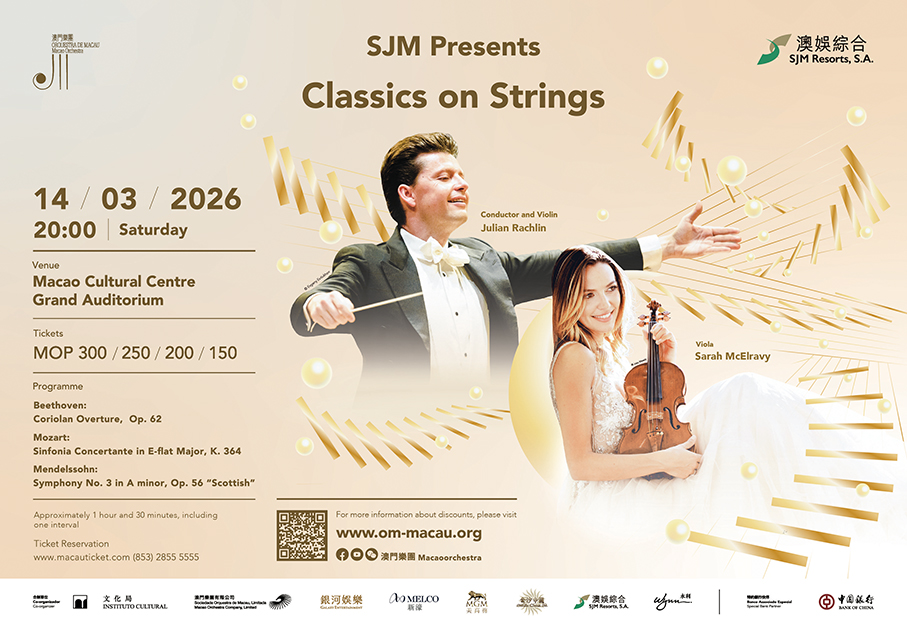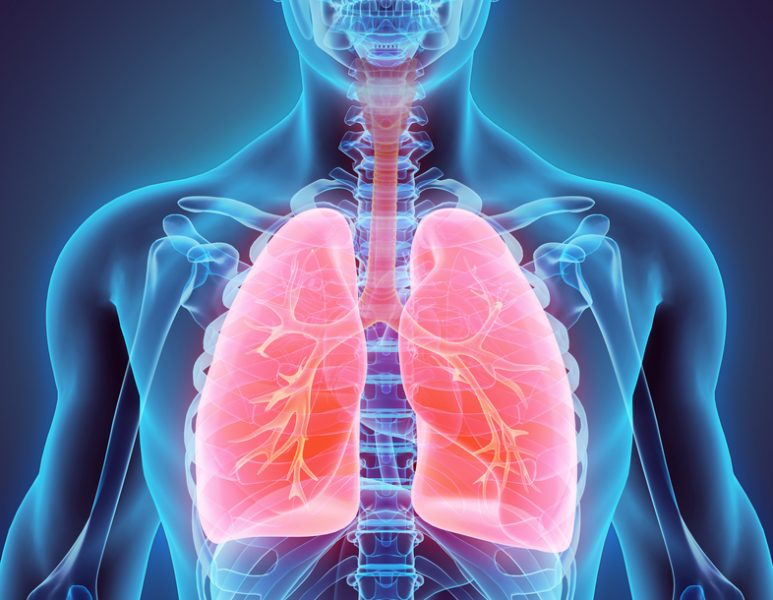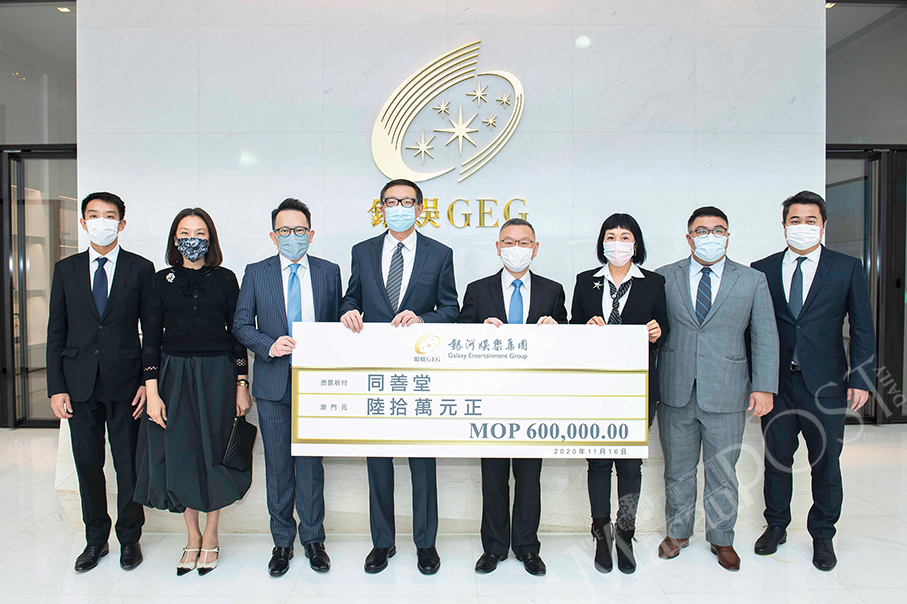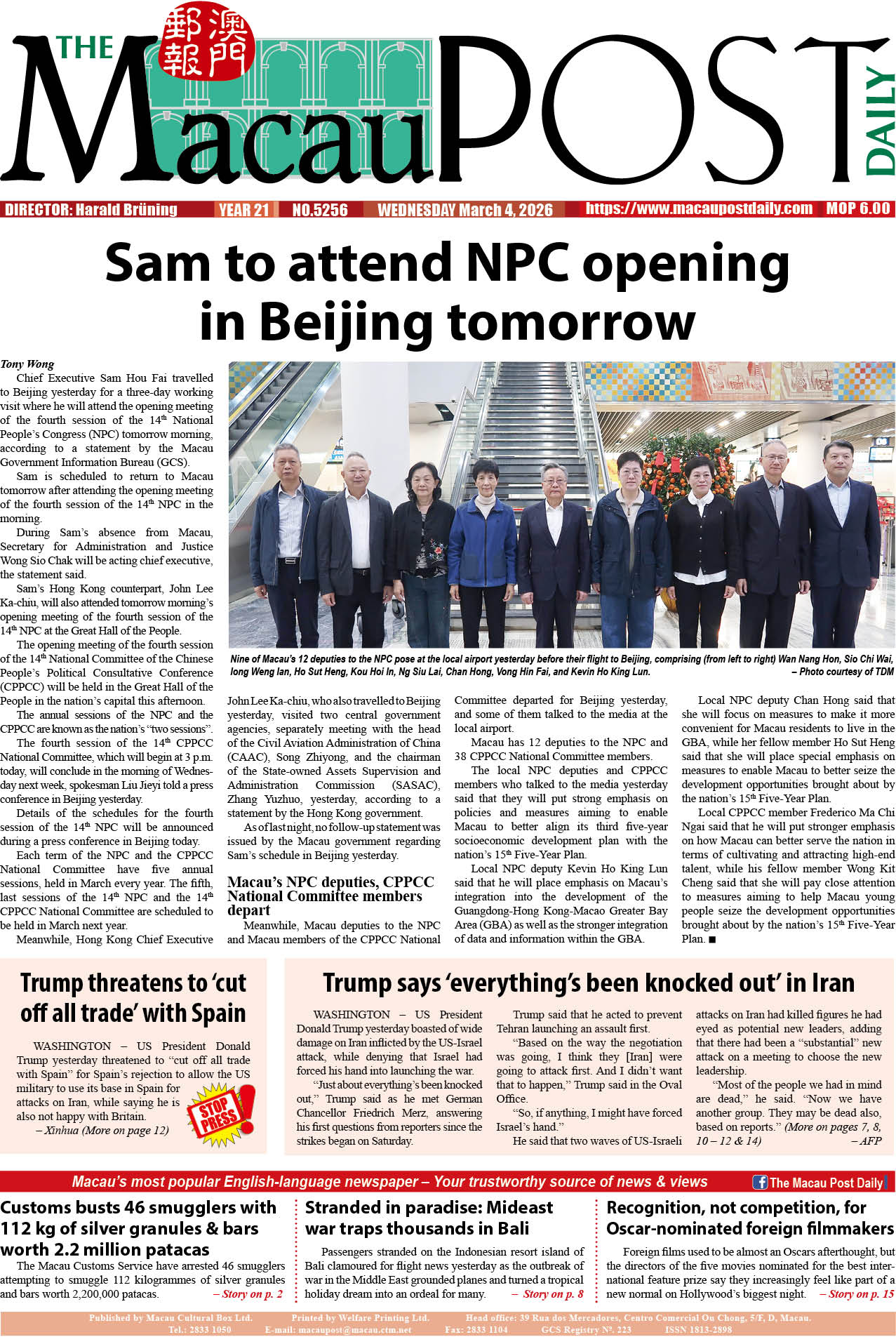Addressing yesterday’s press conference about Macau’s novel coronavirus situation, the Health Bureau’s (SSM) Control of Communicable Diseases and Surveillance of Diseases Department Coordinator Leong Iek Hou said that the Macau government will purchase 1.4 million doses of COVID-19 vaccines covering the city’s whole population as each person will need two shots in order for the vaccine to be effective.
According to official statistics, Macau had a population – comprising residents and non-resident workers – of 685,400 at the end of the second quarter.
Leong said that getting residents vaccinated against the novel coronavirus will be an important part of the Macau government’s COVID-19 prevention work so it has been in close communication with vaccine suppliers worldwide for Macau’s possible purchase of their COVID-19 vaccines in the future.
COVAX Facility
Leong revealed that last week the Macau government signed an agreement with the World Health Organisation (WHO) and the Gavi vaccine alliance for Macau to join their “COVAX” global vaccine allocation plan, according to which Macau will be able to purchase COVID-19 vaccines covering a certain percentage of its population under the global vaccine collective procurement initiative – also known as COVAX Facility.
Leong pointed out that the COVAX Facility will give priority to COVID-19 high-risk countries and regions in vaccine procurement, adding that therefore COVID-19 vaccines are expected to be supplied to Macau at a later time under the initiative.
Therefore, Leong said that in addition to signing up for the COVAX Facility, the Macau government will continue its discussions with various vaccine suppliers worldwide on details about its possible purchase of their future COVID-19 vaccines.
The Health Bureau has said that once Macau is able to purchase COVID-19 vaccines, the elderly, chronically-ill patients and anti-COVID-19 medical workers will be the first to get vaccinated.
Leong said yesterday that the number of doses of COVID-19 vaccines to be bought by the Macau government will ultimately cover the city’s whole population, meaning that it will have to buy 1.4 million doses as each person will have to get two jabs so as to make the COVID-19 vaccination effective.
Macau has not recorded a new COVID-19 case for 87 days, while no local case has been confirmed in 176 days.
Community-based COVID-19 control measures
Meanwhile, Leong also said that the government was studying details on how to implement the mainland-style community-based COVID-19 control measures in Macau – in case it confirms new local COVID-19 cases, adding that the Health Bureau is collecting opinions from various government entities about the possible issues that might occur due to its implementation.
Secretary for Social Affairs and Culture Elsie Ao Ieong U told reporters earlier this month that the Macau government is studying the feasibility of the possible implementation of community-based COVID-19 prevention and control measures in Macau – in case it confirms new local COVID-19 cases – in references to the mainland. The policy secretary pointed out that Macau is a small city so that if the local government decides that the mainland-style community-based COVID-19 control measures would be adopted locally, it would have to divide areas affected by COVID-19 in a “very accurate” way. She said that in case Macau confirms new local COVID-19 cases, the smaller the size of the affected area, the fewer residents would be affected by the government’s strict COVID-19 community-based measures.
According to mainland media reports, if residents from a particular community have been newly confirmed as COVID-19 patients, strict COVID-19 measures will be imposed on the community and all its residents. A serious epidemic situation will result in the implementation of closed-off management of the community.
Leong said that the accurate implementation of community-based COVID-19 control measures would be among Macau’s major COVID-19 prevention work in the longer term. Leong warned that due to the still serious pandemic Macau is not facing a “zero risk” situation of confirming new COVID-19 cases.
Leong said that in this context, in case Macau confirms a number of new local COVID-19 cases the local government would have to carry out its COVID-19 control work in a way that it could bring the COVID-19 risk under control while ensuring that the normal movement of people between Macau and elsewhere, the mainland in particular, would not be affected.
Leong said that the Health Bureau was studying how to divide COVID-19 affected areas for the implementation of community-based COVID-19 control measures in Macau. Leong said that the larger the size of the affected area, the more residents would be affected by the government’s strict COVID-19 community-based measures, but if the size of the affected area is too small, it would not be enough to bring the COVID-19 risk under control. Leong said that therefore the Macau government was referencing the various kinds of implementation of community-based COVID-19 control measures in different areas in the mainland.
Wedding banquets should heed COVID-19 guidelines
Meanwhile, Leong also urged those holding private events such as wedding banquets and birthday parties to also follow COVID-19 prevention measures stated in the government’s guidelines for the city’s community associations organising receptions and banquets, which took effect yesterday, despite the fact that such events are not covered by the guidelines.
Leong said that the government has decided not to officially require private events to follow its guidelines for community associations after considering that in reality normally large events involving many attendees in Macau are primarily organised by community associations and the government.
The government has formulated its guidelines on the management of group catering events, which were announced last week, with the aim of reducing the possible risk of the novel coronavirus spreading during the events, after considering that the city’s various community associations will organise receptions or banquets to celebrate the upcoming National Day on October 1.
According to the guidelines regulating the city’s community associations, all those attending an indoor event with over 400 guests during which they cannot wear a facemask for over one hour – i.e. when having their meal – are required to be tested for COVID-19 before attending the event.
According to the guidelines announced last week, the organisers have to perform temperature checks on all those entering the venue and request them to present their Macau Health Code. The organisers should also refuse admission to anyone with a fever or any respiratory symptoms. According to the guidelines, all guests at the venue are required to wear a facemask all the time when meals are not served, and stick to social distancing. They can only take off their facemasks when eating.
Leong also said during yesterday’s press conference that the government believes that community associations would not choose to organise events in the name of private events so as to avoid having to follow its guidelines on group catering events because they would have to bear the consequences if some guests attending the events are infected with the novel coronavirus disease. Leong said that it was not difficult for the guests to present a nucleic acid test (NAT) certificate as it was “very convenient” for residents to undergo a COVID-19 test.
Meanwhile, Leong also said that the Macau government believes that visitors from the mainland will comply with Macau’s COVID-19 prevention measures such as always wearing a facemask when out and about; particularly when they see that local residents are always wearing a facemask regardless of being indoors or outdoors.
The issuing of Individual Visit Scheme (IVS) tour permits for all mainlanders to travel to Macau will resume tomorrow.
Health Bureau (SSM) Control of Communicable Diseases and Surveillance of Diseases Department Coordinator Leong Iek Hou addresses yesterday’s press conference about the city’s novel coronavirus (COVID-19) situation. Photo: Tony Wong









